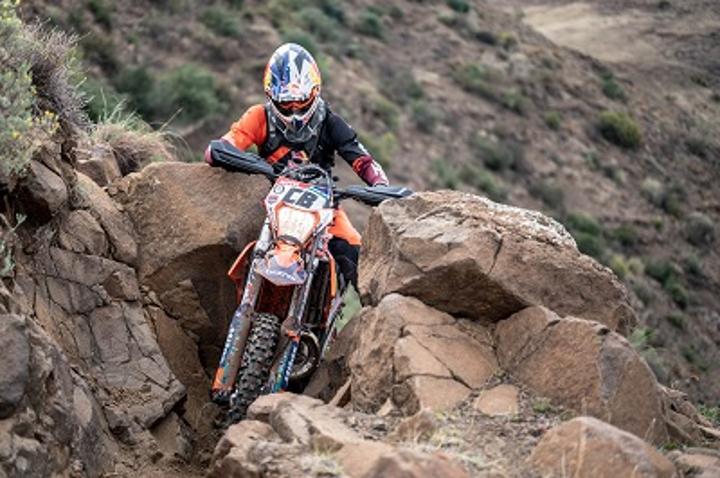Africa-Press – Lesotho. While Lesotho, like many countries around the world, has begun easing lockdown restrictions, the 2020 installment of the much anticipated iconic sporting spectacle
– Roof of Africa, remains uncertain due to the pandemic, having plunged the
globe into unprecedented times, never witnessed before in this century. This is according to the Lesotho Off-road Racing Association (LORA) Public Relations Officer (PRO) Keketso
Malebo in an exclusive interview with Informative Sport. The Roof of Africa race is slated for November 18th through to November 21st 2020. If this year’s race is eventually canceled, it would mark the second time
in its history it is not held since it was launched in 1967. The only other year when it was abandoned was in 1998 due to political riots in the country.
Amidst the virus outbreak, LORA in March indefinitely shelved the Retro Roof and Senqu Enduro, initially scheduled for March 21st and April 4th, respectively.
At the time, Malebo was “optimistic that the situation would soon return to normality; if it doesn’t soon, it could be a huge blow for motorsport in general”.
Fast-forward to the present, he now believes that not only the aforementioned races are likely to be completely scrapped for this year, but also the Mother of Hard Enduro – as the Roof of Africa rally is affectionately known. Malebo cites an escalation of global infections against advancements in finding a vaccine for the virus, suggesting that movement restrictions are expected to be in place for a long time while most of the participants of the race are from South Africa (SA) and abroad. “The fight against Coronavirus seems to be longer than we had expected while there are no signs of a vaccine discovery in the near future,” Malebo said.
“The main concern is that most of the bikers for this race are from SA and Europe, and it seems like there would be travel restrictions for a while until the authorities find a way to contain this virus. ” The relaxation of some of the lockdown restrictions in the country has not benefitted local riders, according to Malebo, who went on to also highlight the scarcity of spare parts as another challenge.
The restrictions haven’t been totally lifted, so a biker can’t travel to some areas deemed appropriate for practice because that would be infringing the set regulations and laws,” he added. “Practicing in a confined local area doesn’t provide one with the required atmosphere of the terrain common in most of our races. “Another challenge is that most motor spare parts manufacturers have not opened yet after they were classified as non-essential services in most countries, including our neighboring South Africa where our local riders purchase spare parts and equipment.
So, it wouldn’t be wise to practice at full capacity while the repairing of the bikes isn’t guaranteed. ” The Roof of Arica Race is managed and run by “Live Lesotho”, a fun and adventure company based in Lesotho while LORA is the custodian of this event, attracting about 400 riders. The event is reported to be injecting M100 million into the Lesotho’s economy in a single week of its hosting.
For More News And Analysis About Lesotho Follow Africa-Press






